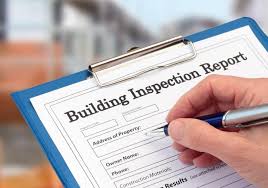Third-party inspection for energy sector plays a crucial role in ensuring the quality and compliance of energy-related projects. With the increasing demand for energy resources, it is imperative to have reliable and efficient inspection processes in place. Third-party inspection services offer independent and unbiased evaluations of energy sector projects, helping to identify and mitigate risks, ensure regulatory compliance, and uphold industry standards. In this article, we will explore the importance of third-party inspection for the energy sector and the measures taken to ensure quality and compliance in this critical industry.
Ensuring quality and compliance in the energy sector is critical for maintaining safety and operational efficiency. Third-party inspection services play a crucial role in verifying that equipment, facilities, and processes adhere to industry standards and regulations. These inspections typically involve thorough assessments of infrastructure, equipment functionality, and adherence to safety protocols. Third-party inspectors provide an unbiased evaluation of the site or equipment, offering valuable insights and recommendations to ensure that quality and compliance standards are met. By engaging third-party inspection services, energy sector organizations can demonstrate their commitment to safety and regulatory compliance, ultimately contributing to long-term sustainability and success in the industry.
Ensuring quality and compliance in the energy sector is vital for the safety and reliability of operations. Third-party inspection services play a crucial role in verifying adherence to industry standards and regulations. These inspections involve comprehensive assessments of infrastructure, equipment functionality, and safety protocols. Third-party inspectors offer unbiased evaluations and recommendations, aiding in the maintenance of quality and compliance standards. Engaging third-party inspection services demonstrates a commitment to safety and regulatory compliance, contributing to long-term sustainability and success in the industry.
The Importance of Third-Party Inspection in the Energy Sector

Third-party inspection plays a crucial role in the energy sector by ensuring that equipment, materials, and processes meet industry standards and regulations. This is particularly important in the energy sector, where the safety and reliability of infrastructure and operations are paramount. Third-party inspection helps to mitigate risk, ensure quality control, and enhance overall efficiency in the production, transportation, and distribution of energy resources. These inspections are carried out by independent, certified inspectors who provide unbiased evaluations, which can help companies identify and address potential issues before they lead to costly and potentially dangerous problems. Overall, the importance of third-party inspection in the energy sector cannot be overstated, as it contributes to the overall safety, reliability, and efficiency of energy operations.
Ensuring Safety and Compliance: Third-Party Inspection for Energy Industry

Ensuring safety and compliance in the energy industry is essential for protecting workers, the environment, and the public. Third-party inspection services play a critical role in verifying that energy industry operations meet regulatory requirements and industry standards. These inspections provide an independent assessment of equipment, processes, and facilities to identify potential safety hazards, regulatory violations, and areas for improvement. By outsourcing this responsibility to a qualified third-party inspector, energy companies can benefit from unbiased evaluations and recommendations for addressing non-compliance issues and enhancing safety measures. This proactive approach can help prevent accidents, reduce liability, and ensure the efficient and sustainable operation of energy facilities.
Best Practices for Third-Party Inspection in the Energy Sector

Third-party inspection in the energy sector involves the assessment and verification of various processes and equipment related to energy production, distribution, and usage. Some best practices for third-party inspection in this sector include: 1. Qualification and competence: Ensure that the third-party inspection agency has the necessary qualifications, expertise, and experience in the energy sector to effectively assess and verify the relevant processes and equipment. 2. Independent assessment: The third-party inspection agency should be independent and unbiased, with no conflicts of interest, to provide an objective evaluation of the energy-related activities. 3. Compliance with regulations: The inspection should be conducted in accordance with applicable industry standards, regulatory requirements, and best practices to ensure that the energy operations meet the necessary legal and safety standards. 4. Quality control: Implement robust quality control measures to ensure the accuracy and reliability of the inspection results, which may include regular training and certification of inspectors, use of calibrated equipment, and adherence to standardized inspection procedures. 5. Timely reporting: The inspection agency should provide timely and detailed reports of their findings, including any non-conformities and recommendations for improvement, to enable the energy companies to take appropriate corrective actions. 6. Communication and collaboration: Effective communication and collaboration between the inspection agency, energy companies, and other stakeholders are essential for successful third-party inspections, which may involve pre-inspection meetings, regular updates, and post-inspection discussions. By adhering to these best practices, third-party inspections in the energy sector can help ensure the safety, reliability, and compliance of energy-related activities, ultimately contributing to the overall efficiency and sustainability of the energy industry.
The Role of Third-Party Inspection in Renewable Energy Projects

The role of third-party inspection in renewable energy projects is crucial for ensuring that the equipment and installations comply with industry standards and regulations. Third-party inspection helps to verify the quality and reliability of the components used in renewable energy projects, such as solar panels, wind turbines, and energy storage systems. It also helps to identify any potential safety hazards and ensure that the project meets performance expectations. Third-party inspection agencies provide independent and unbiased assessments of the renewable energy infrastructure, offering a level of assurance to investors, developers, and regulatory bodies. By conducting thorough inspections and testing, these third-party agencies can help prevent costly delays, maintenance issues, and warranty claims down the line. In addition, third-party inspection can also help to validate the accuracy of performance and energy production claims made by renewable energy project developers. This can be especially important for project financiers and off-takers who rely on accurate projections for their investment decisions. Overall, the role of third-party inspection in renewable energy projects is vital for safeguarding quality, performance, and compliance, ultimately contributing to the long-term success and sustainability of the project.
Maximizing Efficiency: Third-Party Inspection for Oil and Gas Facilities
Maximizing Efficiency: Third-Party Inspection for Oil and Gas Facilities is a service that involves hiring an external inspection agency to assess and evaluate the safety, quality, and compliance of oil and gas facilities. These inspections are crucial for ensuring that facilities are operating at maximum efficiency and in adherence to industry regulations and standards. Third-party inspections can identify potential issues and hazards, leading to improved safety, reduced downtime, and increased overall productivity. Having an independent party conduct these inspections also adds credibility and transparency to the process. Overall, utilizing third-party inspection services can lead to significant cost savings and improved operational performance for oil and gas facilities.
Benefits of Third-Party Inspection in Wind Energy Installations
Third-party inspection in wind energy installations can offer numerous benefits. It provides an independent verification of the quality and safety of the installation, helping to ensure compliance with industry standards and regulations. This can reduce the risk of equipment failure and improve the overall performance and reliability of the wind turbines. Additionally, third-party inspection can help to identify potential issues early on, potentially saving time and money on repairs and maintenance in the long run. By providing an objective evaluation of the installation, third-party inspection can also increase confidence and trust in the project among investors, stakeholders, and the public. Overall, third-party inspection plays a crucial role in ensuring the success and sustainability of wind energy installations.
Challenges and Solutions: Third-Party Inspection for Nuclear Power Plants
third party inspection services
Challenges in third-party inspection for nuclear power plants include ensuring the independence and impartiality of the inspection process, maintaining technical expertise, and providing assurance of compliance with regulatory requirements. Solutions to these challenges may involve establishing clear guidelines for the selection and qualification of inspection personnel, implementing rigorous training and certification programs, and utilizing advanced inspection technologies to improve the accuracy and efficiency of assessments. Additionally, fostering transparent communication and collaboration between all parties involved can help address potential conflicts of interest and ensure the integrity of the inspection process.
Evolving Technologies: Third-Party Inspection in the Energy Sector
third party inspection companies in egypt
Evolving Technologies: Third-Party Inspection in the Energy Sector is a process that involves using advanced technologies and techniques to carry out quality control and verification in the energy industry. This includes the use of drones, sensors, and other remote monitoring equipment to conduct inspections of energy infrastructure such as pipelines, power plants, and renewable energy installations. The aim is to ensure that these facilities are safe, efficient, and in compliance with regulations. Third-party inspection companies play a crucial role in providing unbiased assessments and reports to energy companies and regulatory authorities. This helps in identifying potential issues and improving overall operations in the energy sector.